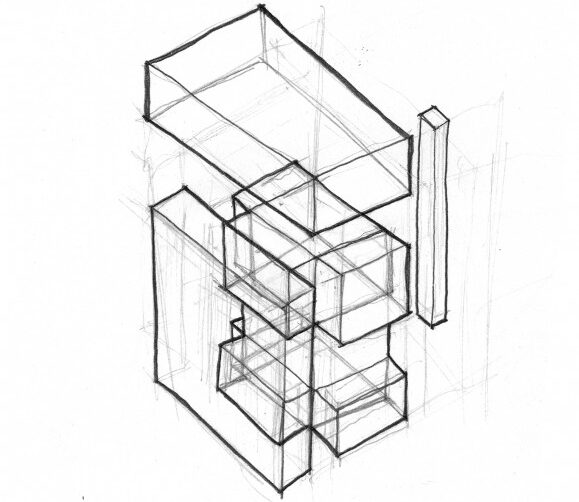- Home
- Articles
- Architectural Portfolio
- Architectral Presentation
- Inspirational Stories
- Architecture News
- Visualization
- BIM Industry
- Facade Design
- Parametric Design
- Career
- Landscape Architecture
- Construction
- Artificial Intelligence
- Sketching
- Design Softwares
- Diagrams
- Writing
- Architectural Tips
- Sustainability
- Courses
- Concept
- Technology
- History & Heritage
- Future of Architecture
- Guides & How-To
- Art & Culture
- Projects
- Interior Design
- Competitions
- Jobs
- Store
- Tools
- More
- Home
- Articles
- Architectural Portfolio
- Architectral Presentation
- Inspirational Stories
- Architecture News
- Visualization
- BIM Industry
- Facade Design
- Parametric Design
- Career
- Landscape Architecture
- Construction
- Artificial Intelligence
- Sketching
- Design Softwares
- Diagrams
- Writing
- Architectural Tips
- Sustainability
- Courses
- Concept
- Technology
- History & Heritage
- Future of Architecture
- Guides & How-To
- Art & Culture
- Projects
- Interior Design
- Competitions
- Jobs
- Store
- Tools
- More
How to Choose the Right Domain Name for Your Architecture Business

Table of Contents Show
Choosing a domain name for your architecture business is a decision that can impact your online presence and branding. Your domain name is not just a web address; it’s the foundation of your digital identity. A well-thought-out domain name can enhance your marketing efforts, make it easier for clients to find you, and convey professionalism.
With the vast number of options available, it might not be easy to select the right one. Let’s navigate the essential considerations for choosing a domain name that resonates with your target audience and supports your business goals.
Understanding the Importance of a Good Domain Name
A strong domain name sets the tone for your architecture business’s online image. First, it provides a unique identity that distinguishes you from competitors. Clients often remember catchy and relevant domain names, which can help improve word-of-mouth referrals. A well-chosen domain name can positively influence your search engine rankings. Google and other search engines favor brands that adopt memorable and descriptive web addresses. Because of the architectural industry’s competitive nature, having an appealing domain name can be integral to attracting potential clients.
When choosing your domain, factor in how it will appear on different platforms. A concise and straightforward domain name is more likely to be user-friendly, accessible on mobile devices, and easier to share on social media. You can easily find domain name options online by purchasing one from a trusted provider. If you want to get creative, you can brainstorm relevant keywords for your industry. The psychological impact of the domain name is worth noting; if it aligns well with your business ethos, clients are more likely to view your brand favorably.

Analyze Your Target Audience
Understanding your target audience is key to selecting an appropriate domain name. Consider what type of clients you aim to attract — this may include homeowners looking for renovations, businesses seeking commercial architecture, or developers interested in innovative projects. Each audience segment has different expectations regarding your brand image, and your domain name should reflect that.
A little search can determine the terms of your potential clients. Use keywords relevant to your services in your domain to improve your search engine visibility. Think about the tone and style that will resonate with your ideal clientele. A modern, innovative architecture firm might opt for a sleek, minimalist domain, whereas a traditional design practice may choose something more classical or heritage-inspired.
Keep It Short and Memorable
In the digital realm, brevity is a must. Short, memorable domain names are easier to remember and quicker to type. Aim for a name that is ideally between 6 and 14 characters long, combining relevant keywords that convey the essence of your architecture business. A concise domain also translates better when sharing your web address in an email or through verbal recommendations.
Complicated or lengthy names tend to be forgotten quickly and can lead to potential clients incorrectly spelling your domain when they attempt to visit your site. Strive for simplicity by avoiding complex terms or unnecessary symbols like hyphens and numbers. If you are looking to diversify your business in the future, you could also consider a domain name that leaves room for expansion without being too limiting.
Choosing the Right Domain Extension
The domain extension you select significantly impacts your business’s first impression. While .com is the most recognized and trusted domain extension, alternatives like .architect or .design are gaining popularity in the architecture field. These domain extensions can offer additional keywords relevant to your services, making your business feel more tailored to your industry.
Becoming too special with your domain extension could risk losing potential clients familiar with the more conventional .com endings. Nevertheless, if you primarily serve a niche market, utilizing extensions tailored to your field can signal professionalism and creativity. It’s about striking a balance between being memorable and ensuring accessibility.
Consider Branding Elements
Your domain name should align seamlessly with your overall branding strategy. Cohesion between your domain and your business name, logo, and marketing materials fosters a sense of unity. The name you choose should reflect your brand’s mission and vision and contribute to building brand recognition. Consider a name that evokes emotions or imagery related to design, architecture, or creativity.
Your branding should convey professionalism and reliability. Use the same tone in your domain as you would in your logo or tagline. This holistic approach will enhance your identity across various devices and platforms. Personal stories or unique features of your services can inspire creative naming while ensuring that your domain name is still relevant and appealing.
Ensuring Availability and Flexibility
Once you’ve settled on a potential domain name, verify its availability across various platforms. A quick search will allow you to see if the domain name is already registered. If your preferred domain name is taken, consider minor adjustments. Sometimes, a simple variation can yield an available option and maintain relevance to your brand.

Do not forget to check on social media platforms, as uniformity across all channels will enhance your brand’s recognition. Consistency makes it easier for clients to find you across various platforms and create a seamless experience. If in the future you will want to evolve your brand, avoid choosing something overly specific.
Legal Considerations and Trademarking
Before finalizing your domain name decision, factor in any legal implications. Registering a domain name does not automatically confer trademark rights, so conduct a thorough trademark search to ensure that your chosen name doesn’t infringe on existing brands. If your name closely resembles a well-known company or product, you could encounter legal issues in the future.
To protect your brand, register your domain name as a trademark. Doing so will prevent others from using a similar name that could confuse your clients. Look into domain privacy protection to shield your identity and personal information. Though legal aspects might seem overwhelming, they establish your architecture business’s credibility in the long run.
Choosing the right domain name is a significant step toward building a successful architecture business online. A memorable, relevant domain can enhance your brand’s visibility, contribute to your marketing strategy, and attract clients effectively. By understanding your audience and considering branding elements, availability, and legal issues, you can navigate this process to create a domain name that reflects your business ethos and ambitions.
illustrarch is your daily dose of architecture. Leading community designed for all lovers of illustration and #drawing.
Submit your architectural projects
Follow these steps for submission your project. Submission FormLatest Posts
Shigeru Ban Architecture: Vision, Awards & Humanitarian Design
Discover how Shigeru Ban revolutionized architecture with paper tubes, disaster relief shelters,...
Revolutionizing Video Commerce: How E-Commerce Brands Are Scaling Product Videos with AI
Table of Contents Show The Product Video Problem: Why Scale MattersThe Seedance...
The Complete Beginner DIY Plumbing Checklist: A Step-by-Step Guide for First-Time Home Projects
Table of Contents Show Step 1: Confirm the Job Is Truly Beginner-FriendlyStep...
Top Job Alternatives for Architects and Interior Designers
Explore diverse job alternatives for architects and interior designers, from creative roles...












Leave a comment